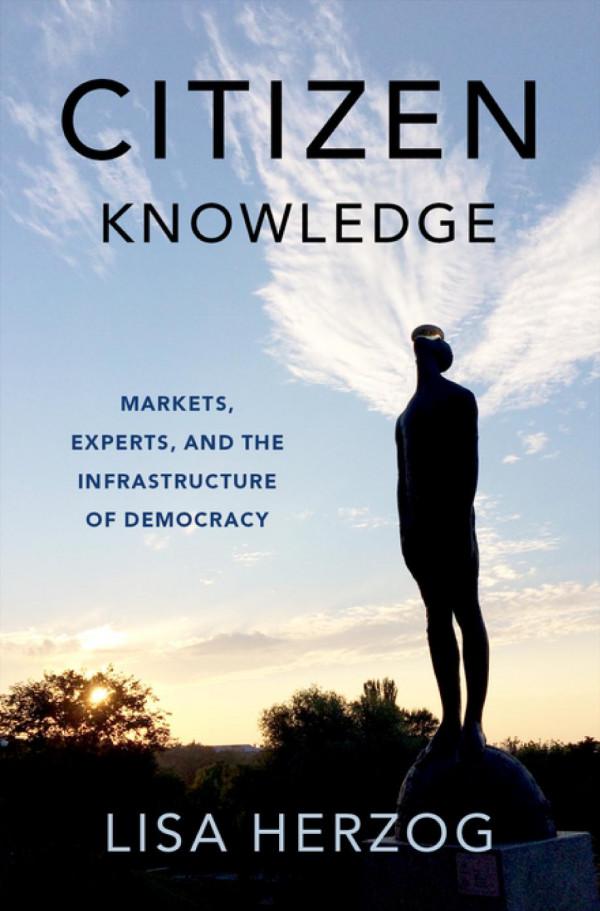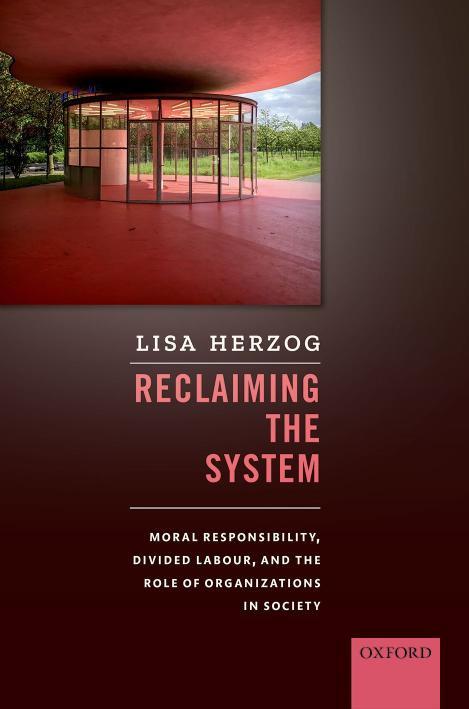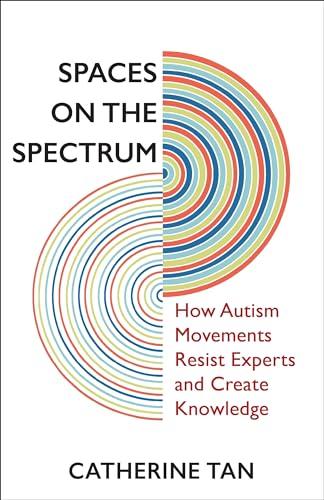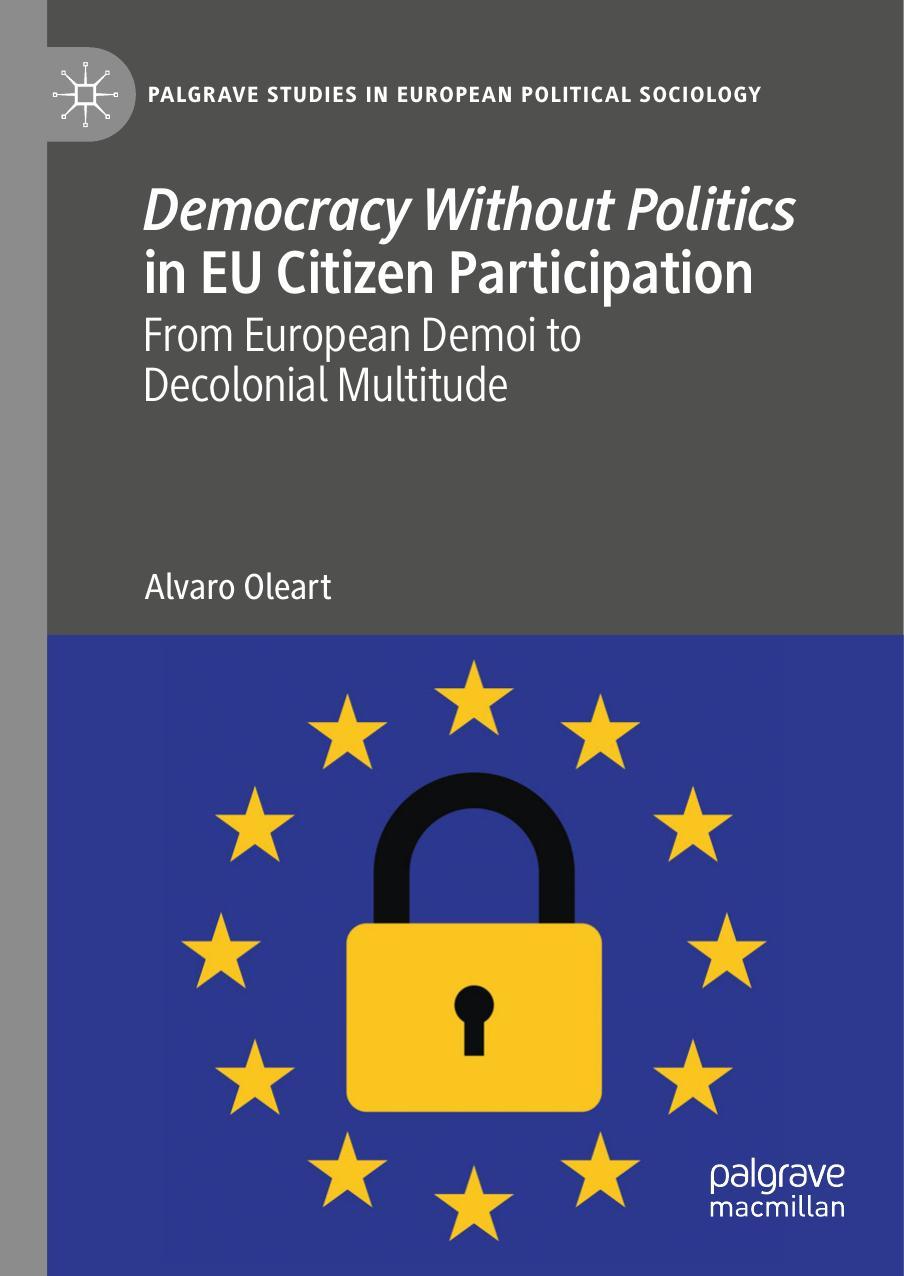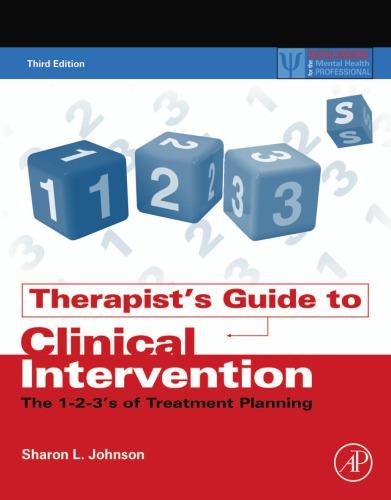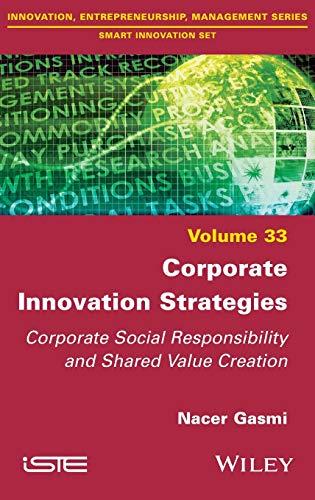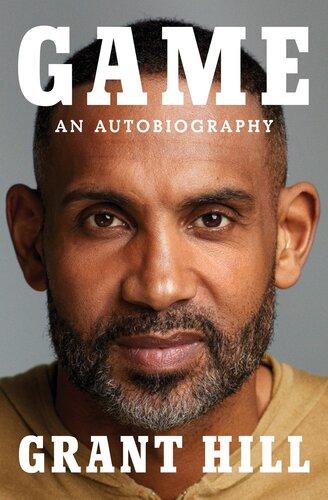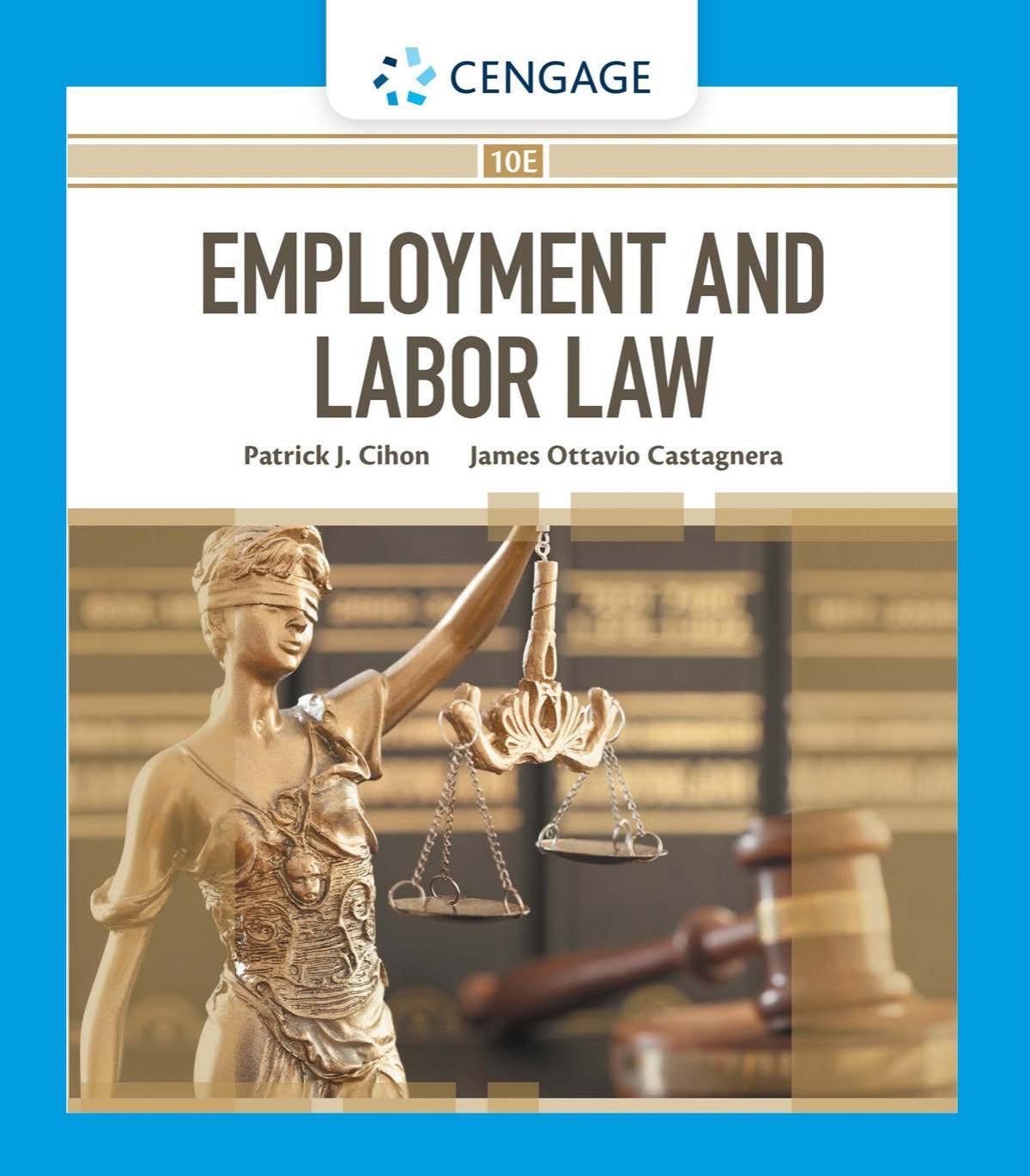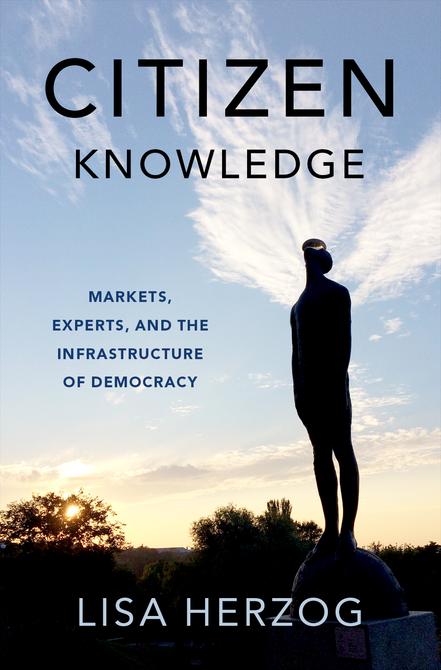Citizen Knowledge
Markets, Experts, and the Infrastructure of Democracy
LISA HERZOG
Oxford University Press is a department of the University of Oxford. It furthers the University’s objective of excellence in research, scholarship, and education by publishing worldwide. Oxford is a registered trade mark of Oxford University Press in the UK and certain other countries.
Published in the United States of America by Oxford University Press 198 Madison Avenue, New York, NY 10016, United States of America.
© Oxford University Press 2024
Some rights reserved. No part of this publication may be reproduced, stored in a retrieval system, or transmitted, in any form or by any means, for commercial purposes, without the prior permission in writing of Oxford University Press, or as expressly permitted by law, by licence or under terms agreed with the appropriate reprographics rights organization.
This is an open access publication, available online and distributed under the terms of a Creative Commons Attribution – Non Commercial – No Derivatives 4.0 International licence (CC BY-NC-ND 4.0), a copy of which is available at http://creativecommons.org/licenses/by-nc-nd/4.0/.
You must not circulate this work in any other form and you must impose this same condition on any acquirer.
Library of Congress Control Number: 2023942167
ISBN 978–0–19–768171–8
DOI: 10.1093/oso/9780197681718.001.0001
Printed by Integrated Books International, United States of America
2.
4.
6.
7.
6.6.
7.1.
7.2.
7.2.1.
7.3.
7.4.
8.
8.1.
8.2.
9.
9.1.
9.3.
9.3.1.
9.3.2.
9.3.3.
9.4.
10.
Acknowledgments
Thanking all those who have helped to write a book is one of the most beautiful moments in the process—the only challenge being not to overlook anyone! I started thinking about the relation between knowledge, markets, and democracy during a wonderful year at the Wissenschaftskolleg zu Berlin in 2017–18. The next year I left German academic feudalism behind and moved to the Faculty of Philosophy at the University of Groningen. After a few happy months, however, the corona pandemic started. In retrospect, it blurs into one endless Zoom call, with a completely messed-up sense of time. But it also brought new opportunities for digital collaboration with colleagues across the globe, which philosophy, Western-centric as it continues to be, will certainly benefit from. In 2020–21, I had the opportunity to take up a short fellowship at the Hamburg Institute for Advanced Study, which provided the perfect environment for incorporating the comments of one rather mean and two excellent reviewers. I put final touches on the manuscript back in Groningen, finally fully back in person.
Those are the bare facts, but they hardly do justice to the many enriching, inspiring, and thought-provoking encounters I had along the way. I’ll start with Georg, my husband, not only because his support has been invaluable—as always!—but also because during the corona lockdowns, confined to “home office,” keeping each other sane was crucial. Then, there are a number of people close to my heart who helped in all kinds of direct or indirect ways: Katya Assaf, Michaela Golic, Sarah Hegenbart, Friedemann Pestel, Anna Kelber, as well as my mom, sisters, and extended family. A few collaborative project during the corona period were particularly important for keeping up my spirits; let me mention in particular the Democratizing Work Initiative that started with the 2020 manifesto and led to the 2021 Global Forum on Democratizing Work, and the working group on international vaccine distribution that lead to the “fair priority” model.
I had conversations about the book project with too many people to list them all, but let me mention a few, in no particular order: Adrian Haddock, Luise Müller, Ute Frevert, Jenny Saul, Roger Brubaker, Jürgen Kocka, Bénédicte Zimmermann, Daniel Schönpflug, Thorsten Wilhelmy, Ute Frevert, Ivan Boldyrev, Tim Wihl, Erin Nash, Keith Breen, Claus Offe, Christian Joerges, Dean Moyar, Eugénia da Conceicao-Heldt, Stefan Wurster, Miranda Schreurs, Martin Oppelt, Just Serrano Zamora, Jakob Moggia, Frauke Schmode, Alexander
Krüger, Selina Schröttle, Patrizia Nanz, Michael Frazer, Mark Reiff, Garrath Williams, Kai Spiekermann, Keith Breen, Fabian Schuppert, Franziska Dübgen, Eric Schliesser, Uğur Aytaç, Simon Caney, Ingrid Robeyns, Mathias Frisch, Verina Wild, Isabelle Ferreras, Jo Wolff, Emanuela Ceva, Maria Paola Ferreti, Rowan Cruft, Einat Albin, Michal Shur-Ofri, Jeroen de Ridder, Boudewijn de Bruin, Michael Hannon, Megan Blomfield, Julian Müller, Catarina Duthil Novaes, Daniele Santoro, Hand Radder, Eric Boot, Nikolas Kirby, Oliver Milne, Jacob Garrett, Anna Alexandrova, Albert Dzur, David Cassasas, David Guerrero, Steven Klein, Shai Agmon, Neil Wilcock, Leon Wansleben, Gabriel Abend, Bernardo Zacka, as well as my great colleagues in Groningen, in the Faculty of Philosophy and beyond.
I presented ideas that have something to do with the book in colloquia, workshops, or conferences, in person or digitally, at Goethe University Frankfurt, the University of Iceland, the University of Ottawa, the University of Münster, Freie Universität Berlin, the University of East Anglia, Technical University of Munich, the London School of Economics, the Hertie School of Governance, INSEEC Paris, the Max Planck Institute for Human Development, the University of Hamburg, the University of Applied Sciences Vienna, the University of Edinburgh, Queen’s University Belfast, Hochschule für Philosophie München, Wissenschaftskolleg zu Berlin, the University of Amsterdam, Technical University of Dortmund, the University of Tampere, Bavarian Academy of Sciences, the Alfred Wegener Institut Bremerhaven, Fordham Law School, the University of Manchester, Tilburg University, Braunschweig University, Southampton University, the University of Geneva, the University of Genova, the University of Montreal, the University of Paderborn, the University of Utrecht, Sharif University Teheran, Pontificia University Catolica del Peru, HIAS Hamburg, Academy of Sciences Hamburg, George Mason University, Kadir Has University, and the University of Groningen. I sincerely thank all organizers and participants for their feedback, on ideas that turned out to be impasses as well as on those that were fruitful.
In March 2022, Alice Pinheiro-Walla organized a digital manuscript workshop at McMaster University for me—a wonderful treat that I benefited a lot from, and that delivered food for thought far beyond the manuscript. I would like to thank Alice, as well as the commentators Eyja Brynjarsdóttir, Stefan Sciaraffa, Rudolf Schüssler, Jack Knight, Alfred Moore, Thomas Christiano, Johannes Steizinger and other participants for the care with which they have read my chapter drafts and the comments they have provided. I would also like to thank three reviewers of the book for Oxford University Press, two of whom read the manuscript in great detail and gave me very valuable feedback; a third one pointed me to interesting further literature that I might otherwise have missed.
I thank Peter Ohlin and the whole team at OUP for their support during the review and publication process.
While working on the book, I was also busy with setting up the SCISO Project (“Science with Society”; see https://globalyoungacademy.net/scisco/ ) at the Global Young Academy, the topics of which partly overlap with those of Chapter 8 of the book). I greatly enjoyed working with the members of the working group, and with Kristin Raabe and Shruti Madhani, as well as the colleagues at the National Institute for Science Communication (NaWik) and the fantastic staff at the GYA office in Halle. I decided not to include a chapter explicitly about the role of science (in contrast to experts more generally speaking) in society, but my contributions to this project reflect some of my ideas about it. Some earlier ideas were presented in the following papers:
- “Markt oder Profession? Die Politik zweier Wissenslogiken.” Leviathan 46(2) (2018), 189–211.
- “The Epistemic Division of Labor in Markets: Knowledge, Global Trade, and the Preconditions of Responsible Agency,” Economics & Philosophy 36(2) (2020), 266–86.
- “The Epistemic Seduction of Markets,” The Raven, December 2021, https:// ravenmagazine.org/magazine/the-epistemic-seduction-of-markets/.
- “Are Financial Markets Epistemically Efficient?,” in The Philosophy of Money and Finance, ed. Lisa Warenski and Joakim Sandberg, forthcoming with Oxford University Press.
I would like to thank the publishers of the relevant journals for the permission to reprint this material.
As I finalize the manuscript, the world looks rather darker than when I started working on it. The climate and biodiversity crisis continue to loom large. The scars that the corona pandemic has left in the social fabric of many societies will probably stay for a long time, and as so often, many of those hit hardest are among the most vulnerable members. The Russian attack on the Ukraine has been a kind of existential shock, even for many of those who, like me, have no direct family connections or collaborations in the country. Questions about economic reform, or reforms of epistemic institutions, as suggested in the book, seem to have moved to the background of political attention again. I try to remain optimistic, in the “optimism of the will” sense. I hope that the perspective that this book offers will contribute, in its own little way, to understanding our current time and what we can do to work toward peace and social justice.
Introduction
1.1. Democracy’s Trouble with Knowledge
Democracy, at its core, means that the members of a society jointly decide about its fate, on an equal footing. To do so, they need to know what they are doing. They need to know about political institutions and practices, and they need to draw on various forms of knowledge to formulate and implement policies. Social policies need to draw on insights, whether from statistical analyses or testimonies by affected citizens, about the causes of poverty and possible mechanisms to fight it. Environmental policies need to rely on an understanding of the causes and effects of climate change and the loss of biodiversity, and on sound proposals for addressing them. Without knowledge, and processes for integrating it into decision-making, democratic self-rule cannot be but a sham. But democracy and knowledge seem to be in a difficult phase of their relationship, with many signs of trouble. Let me name a few.
There is, first, the resentment against “experts,” which populists in many countries both fuel and exploit. “People have had enough of experts,” was an infamous phrase in the Brexit campaign.1 As a general statement, this seems plainly false: surveys show that scientists, for example, continue to be seen as one of the most trustworthy professions.2 Moreover, some voters continue to hold rather “technocratic” positions, scoring high, in empirical studies, on reliance on expertise and elitism.3 The infamous phrase about people “having had enough of experts” referred to economists, arguably a specific kind of experts, and to their alleged ability to predict economic outcomes with high precision.4 Many individuals may have “had enough” of that, and yet trust their doctors and other experts they encounter in their daily lives. But on several specific issues such as climate change or vaccination, we see strong polarization. And certain politicians do not even want citizens to get informed. As then-US president Donald Trump once put it: instead of listening to others, “Just stick with us.”5 Group cohesion
1 See, e.g., Eyal 2019, 1–4, and Nichols 2017, 209, for discussions.
2 E.g., Funk et al. 2020.
3 See Bertsou and Caramani 2022 for data based on a 2017 survey in nine European countries.
4 For a discussion see also Dow 2017.
5 Tornoe 2018; for a discussion of Trumpian politics with regard to truth see also Rosenfeld 2019, chap. 1.
and blind allegiance instead of dialogue and reliance on knowledge—is that the future of public discourse?
There are, second, many forms of knowledge that are distorted by vested interest. In their book Merchants of Doubt, Naomi Oreskes and Erik M. Conway document how the tobacco industry obfuscated public knowledge about the harmfulness of smoking, thereby providing the playbook for numerous other industries with regard to other harmful products.6 Evidence about the relation between smoking and lung cancer started to accumulate by the 1940s. But the tobacco industry was not willing to face the foreseeable consequences of this knowledge, namely restrictions on the selling of tobacco products. It started to fight back, claiming that there was “no proof” of the harmfulness of smoking.7 Corporations and industry associations sought out the few scientists who did not believe in a connection between smoking and lung cancer and showered them with money, on the understanding that they would serve as mouthpieces for the industry, for example, as expert witnesses in court. Often, they specifically targeted renowned scientists such as Nobel Prize winners, even if they came from completely different fields. They relied on the media’s tendency to listen to “famous scientists” and to always report “both sides” of debates.8 In addition, industry associations set up think tanks, sent out thousands of booklets to doctors, published op-eds, and accused critics of “junk science.”9 Through these strategies, the tobacco companies managed to delay regulation for decades. The prevalence of free market thinking, with its general suspicion of state interventions, probably helped their case.10
What came to be known as the “tobacco strategy” was also used in other areas, including climate change. It exploits a core feature of scientific research: that it thrives on a plurality of approaches and on the willingness to question received wisdom. As Oreskes and Conway write: “Doubt is crucial to science . . . but it also makes science vulnerable to misrepresentation, because it is easy to take uncertainties out of context and create the impression that everything
6 I follow the account by Oreskes and Conway 2010, which is widely considered authoritative in the literature (for a constructive assessment see, e.g., Wynne 2010; he critically notes the assumption that science alone could decide political issues, but it is not clear that Oreskes and Conway hold this view. He also points out that there have been cases in which scientific uncertainty has been underplayed instead of overplayed.) For other accounts of the “tobacco wars” see, e.g., Proctor 1999; Glantz et al. 1996; Michaels 2008, chap. 1. In general, see also Otto 2016, chap. 10, “The Industrial War on Science.” O’Connor and Weatherall 2019, chap. 3, and Cassam 2018 discuss the topic from the perspective of social epistemology. See also recently Cook et al. 2019 on similar phenomena with regard to climate change. On effects on academic research see also Franta and Supran 2017; Johnson 2017; Gillam 2019; and Lawrence et al. 2019.
7 Oreskes and Conway 2010, 16.
8 Oreskes and Conway 2010, 19.
9 See, e.g., Otto 2016, 292–96.
10 Oreskes and Conway 2010, e.g., 134, 174, 237–50.
is unresolved.”11 This can make it difficult for politicians and the democratic public to understand where research stands and what action should be taken. And it makes democratic processes vulnerable to strategic maneuvers by those who do not want the public to know certain things and to act on them. Instead of fighting policy proposals directly, it can be a better tactic to fight the knowledge they are based on, in a kind of “epistemic politics.”12 In the United States, for example, there is a large “product defense” industry, specialized in preventing market regulation.13 And often, the battleground is not only the policy proposals themselves, but also the knowledge they are based on.14
But it is not only knowledge and information as such, in the sense of hard facts and scientific findings, that can have a hard time prevailing in public discourse. Even the ways in which these are presented and framed can get caught in controversy and legal battles—a third indication that something is not going well between democracy and knowledge. Take, for example, the so-called ag-gag laws: laws that ban the production of pictures and video footage recorded in industrial farms.15 In many US states, the industrial farming lobby has pushed for draconic laws against such actions. Information about industrial farming and its problems is widely available, but pictures or videos of suffering animals can send stronger, more emotionally loaded messages that might move consumers to change their purchasing behavior. Hence the strong interest of the agricultural industry in keeping such pictures out of the public eye, and hence the disproportionate criminalization of animal rights activism.16
Some critics of democracy would add citizens’ lack of knowledge about, or maybe even lack of interest in, politics to the list of problems.17 As many surveys show, considerable numbers of citizens cannot reproduce basic pieces of information about the political system they inhabit. Moreover, especially in
11 Oreskes and Conway 2010, 34. On the difficulties of delineating legitimate from illegitimate scientific disagreement see also de Melo-Martín and Intemann 2018.
12 This also concerns specific regulatory decisions and the institutions that are responsible for them. For example, Michaels (2008, 149–50) lists various examples of how the research done to get FDA approval for new drugs can be manipulated.
13 Michaels 2008, chap. 5.
14 See also Pielke 2007, 63. Otto 2016 provides various examples from different countries.
15 See Broad 2016 for a discussion; I thank Garrath William for sharing this paper with me.
16 Fights about how information has to be presented—in contrast to what information has to be made available—are frequent. Another example, discussed by Crouch (2016, 43–44), was the vehement lobbyism on the part of the European food industry to prevent a “traffic light” system for the content of fat, sugar, and overall calories in processed food. This information is already available, in small print, but a “traffic light” system would have made it more salient for consumers. Hence, one must suppose, the resistance.
17 In this camp, prominent names are, for example, Caplan 2007; DeCanio 2014; Pennington, e.g., 2011; Somin, e.g., 2013, 2021; on the empirical side see, e.g., Achen and Bartels 2016 and Mason 2018. Jason Brennan’s 2016 book summarizes many of the earlier debates; see also his recent proposal of “enlightened preference voting” (Brennan 2021). For a critical discussion see, e.g., Christiano 2019b, 2021; Bhatia 2019; and Reiss 2019. I take up this literature in Chapter 11.2.
countries with two-party systems, there has been a lot of discussion about polarization: about citizens behaving like fanatic sports fans who cheer for their team rather than carefully thinking about political issues and then casting their vote on an informed, reflective basis. The idea of “holding the powerful to account” hardly works if a population is divided into two camps who deeply resent each other and who would never vote for the other side, no matter how their own leaders behave in office. In fact, in some countries the media landscape is so bifurcated that citizens hardly ever get a chance to seriously consider the positions of the other side.18
But are these problems really new? Or have they existed ever since democratic forms of government came into existence, or since there was something one could describe as “public discourse”? Attempts to mislead the public have existed for a long time; for example, in the nineteenth century the Belgian reign in the Congo, which has become a symbol of colonial terror, was accompanied by a systematic misinformation campaign by the Belgian crown.19 In the 1920s, Walther Lippmann and John Dewey argued about the existence of a democratic “public” and the state of its knowledge.20 In the 1980s, social scientists explored the patterns of political controversies, which often concerned the publication and presentation of knowledge.21 In many political struggles, knowledge gets weaponized in ways that do not conceptualize it as something to be shared— maybe even as a public good—but rather as something to be hoarded and instrumentalized.22 What is hard to swallow is not this mere fact, but rather how widespread this phenomenon continues to be in our allegedly open, transparent, and democratic age, in which the internet places so many sources of information and knowledge at our fingertips.
Some commentators have, in fact, argued that we have reached a point at which knowledge no longer matters. The “tobacco strategy” playbook still held up the facade, in the sense that claims were made in the name of “science.”23 In recent years, however, more and more actors seem to have transitioned to complete cynicism, declaring truth irrelevant. For example, as Russell Muirhead and Nancy Rosenblum argue, many recent “conspiracy theories” do not even provide detailed theories; instead, they flourish on repetition alone, which the internet facilitates.24 Some political advisers, for example Trump’s ex-adviser Steve
18 See especially Benkler et al. 2018 on the United States; in Chapter 9.3.2 I discuss the role of the media for democracy.
19 Barton and Davis 2018, 3–6.
20 Lippmann [1927] 1993; Dewey [1927] 2016.
21 See, e.g., Nelkin’s 1984 volume on “controversies.”
22 See Davies on a military vs. a civilian understanding of knowledge (2018, esp. 139, 150).
23 As Michaels laconically puts it, in the United States, “Industry has learned that debating the science is much easier and more effective than debating the policy” (2008, xi).
24 Muirhead and Rosenblum 2019.
Bannon, declared the established media, with their commitment to factful reporting, their foremost enemies. One of his own strategies was to simply create more and more content that would obscure the line between truth and falsehood, leading to “a growing weariness over the process of finding the truth at all.”25 At the same time, politicians, civil servants, journalists, and maybe even ordinary citizens get more and more used to studies being skewed or facts being presented to them in a one-sided way.26
And yet there is not only shadow, but also light. For one thing, many of these phenomena are now being openly discussed, with more and more calls for transparency, accountability, and clear guidance concerning conflicts of interests and other ethical issues. For another, more and different voices have become audible in the public conversation: of women, of people of color, of all those previously excluded by visible and invisible barriers. In this respect, the internet, despite all its problems, seems to have fulfilled part of its promise. It has made the public conversation more polyphonic than ever. But this very fact has also led to irritation and resentment on the part of actors who might, in earlier periods, have been faced with less competition for attention. Metaquestions about the state of public discourse are, in turn, controversially debated in public. It seems that we might be in a period of transition, in which the deficits of previous periods have become painfully clear, but we have not yet been able to draw the right conclusions and to implement solutions.
It is this confusing and disconcerting state of the relation between democracy and knowledge that I take as my starting point. I use the term “knowledge” in a broad and general sense;27 and my focus is on democratic capitalist societies as they exist in the “Western” world. I wish I could have written a book that would also take into account other parts of the world, but I do not feel competent to do so. Having spent only short periods in the Global South and relying mostly on Western sources, I would be presumptuous to claim a global perspective. What I can say with confidence, however, is that the problems of “the West”—where they mar different countries to different degrees—that I discuss in this book have global repercussions, not least through the ways in which they delay and obstruct collective action against climate change and other environmental problems. The need to bring the global economy onto a more climate-friendly path adds urgency to the topics about the relationship between democracy and knowledge that this book discusses.
25 Illing 2020; he speaks of “manufactured nihilism.” For an example of a manufactured fake news story see also Robb 2017 on the “pizzagate” case.
26 Michaels 2008, 55.
27 Chapter 2 provides the theoretical background for the way in which I use this term.
1.2. The Argument in a Nutshell
This book discusses how knowledge—understood in a broad sense that includes theoretical and practical knowledge in various fields—is dealt with in societies that combine a democratic political system and a capitalist economic system, and how effective democratic self-governance can be ensured. In recent decades, a key argument in favor of markets has been that they allow for the efficient “use of knowledge in society,” in the famous words of Friedrich August von Hayek.28 The argument about the epistemic superiority of markets was a key element of the intellectual movement often dubbed “neoliberalism,” though the term has, arguably, becoming a fighting word of limited analytic usefulness.29 Even many critics of markets, who loathe their inegalitarian consequences, have accepted the idea that markets have a unique capacity to process information.30 But this argument is far more limited in scope than is often assumed, and it cannot be applied to all forms of knowledge. Giving over too much knowledge to markets has made our societies vulnerable to various forms of manipulation, distortion, and exploitation.
The relation between democracy and capitalism gets out of balance if too much or the wrong form of knowledge is treated according to the logic of markets, rather than the logic of either expert inquiry or democratic deliberation. Complex modern societies need different mechanisms for dealing with knowledge, instead of relying on the market mechanism alone. It is true, as many economists have claimed, that many forms of knowledge that modern societies rely on are distributed to different agents and cannot easily be gathered for the sake of centralized decision-making. But this does not mean that markets are the only mechanism for dealing with them, nor does it mean that all forms of knowledge are equally difficult to gather. I distinguish three key mechanisms for creating, transmitting, and processing different forms of knowledge: markets, expert communities, and democratic deliberation. All can have a role to play in complex societies, but in recent years, the market has been given far too much scope—or so I will argue.
If too many processes that produce or transmit knowledge are handed over to markets, this usually does not lead to a situation in which all market participants benefit equally. Rather, the opportunities are grasped by the most powerful— and maybe also the most cynical—players. Given the democratic-and-capitalist constellation in Western democracies, these players are often corporations, with their deep pockets and sometimes ruthless commitment to profit maximization.
28 Hayek 1945.
29 For a discussion and contextualization see, e.g., Biebricher 2019.
30 An interesting example is Carens 1981. In Chapter 4.2 I briefly revisit the debate about “market socialism” that tried to adopt the epistemic advantages of markets to socialist economic systems.
They typically have an interest in knowledge if it creates opportunities to increase profits. In contrast, if knowledge comes with responsibilities, or if it leads to questions about the legitimacy of one’s behavior, they are keen to hide it, marginalize it, or shift the responsibility for it to other agents. In a way, this should not surprise us. Corporations are currently set up to maximize profits, and the narratives about their raison d’être have, for decades, focused on nothing else. The belief in the ability of markets to self-regulate—among other things because of their capacity to process knowledge—and the resulting cutback in regulation has given them free rein in many areas. For the way in which democracies deal with knowledge, however, this has been rather disastrous.
Democracies rely on knowledge, and they need what I call “epistemic infrastructure”: institutions and social practices in which relevant knowledge can be created, checked, corrected, and passed on to decision-makers. Leaving all these processes to markets alone fundamentally misunderstands the nature and function of various forms of knowledge in modern societies. Markets can play a positive role with regard to certain kinds of knowledge, but it is far more limited than is often assumed, and, ironically, for them to play this role well, they need to be regulated in the right way. There is no “invisible hand” that takes on this coordination task on its own. And there is also no invisible hand in the alleged “marketplace of ideas” that would automatically create truth out of the unregulated cacophony of individual speech. The spheres in which knowledge is created and processed often depend quite heavily on regulatory frameworks, and also on a truth-oriented attitude among those acting within them.
We will never be able to achieve a situation in which the processes of knowledge generation are completely shielded from political struggles, nor do we need to strive for this. Values, interests, and facts are too intertwined to think that we could have something like “knowledge creation first, politics second,” with knowledge creation concerning facts, and politics concerning values and interests. In the philosophy of science, the presence of values (though not necessarily political values) within processes of knowledge generation has long been acknowledged.31 But this does not mean that we should give up the ideal of agreement on basic facts, even among those who disagree about values and about the interpretation of facts—for the alternative, ultimately, is a situation in which each political side has its own claims to truth, and its own methods for establishing facts, which makes processes of democratic deliberation and decision-making impossible. This may well be an appropriate description of the current state of certain highly polarized societies, for example, with regard to issues on which
31 See notably Douglas 2009 on the role of value judgments in the acceptance of evidence. On values in social sciences see, e.g., Sayer 2011; on why it would be wrong to try to ban values from science see also de Melo-Martín and Intemann 2018, chap. 9.
religious beliefs stand against scientifically established facts. It is, however, not a basis for democracy.
I discuss these questions from a perspective that I call “democratic institutionalism.” It asks what institutions, both formal and informal, are necessary to secure the rights of citizens and to enable democratic life to flourish. While others, for example, Jack Knight and James Johnson,32 have provided justifications for giving priority to democracy, I take the normative bases of democracy as given and ask how best to realize democratic ideals in concrete institutions and practices so as to ensure effective self-governance. In recent decades, political philosophy has, to a great extent, focused on principles rather than institutions. This is slowly changing, with researchers turning to institutions such as central banks, NGOs, and public bureaucracies.33 I suggest the term “democratic institutionalism” as an umbrella term for exploring concrete institutions, or dimensions of institutions, from the perspective of political philosophy.
To provide a diagnosis of the status quo, I bring into conversation literatures on the epistemic properties of markets, on the epistemic properties of democracy, and on the social epistemology of expertise. In addition, I also draw on the history of ideas. We cannot understand where we currently stand without taking into account how ideas from the past have shaped current institutions and practices; this is why I combine systematic arguments and historical considerations. On that basis, I develop my arguments about how the situation could be improved. These concern the three knowledge processes I distinguished above: markets, knowledge generation in expert communities, and democratic deliberation. For each, I suggest a reorientation in line with democratic institutionalism: regulating markets such that their epistemic capacities actually come to the fore, implementing a trust-based “partnership model” between expert communities and society at large, and strengthening the epistemic infrastructure for democratic public discourse so that it can be protected against interference and that the promise of all voices being heard can be fulfilled. Strengthening the epistemic capacity of democracies, and reining in the power of markets and market actors, is a daunting task, but I take it to be a crucial element for strategies that want to address the much-decried “crisis of democracy.” While epistemic questions are certainly not the only ones that matter for revitalizing democracy, they are central for the long-term legitimacy of democratic systems. And, as I will argue in Chapter 10, they provide additional arguments concerning another area in which reforms are urgently needed, namely the fight against socioeconomic inequality.
32 Knight and Johnson 2011.
33 See, e.g., Dietsch et al. 2018; Rubinstein 2015; and Zacka 2017.
My argument relates to current debates about the epistemic qualities of democracies but takes a somewhat different perspective. In recent years, the debate about the relation between knowledge and democracy has often taken the form of exploring the epistemic advantages and disadvantages of democratic decision-making. As noted above, critics of democracy have drawn on empirical studies of voter knowledge (or rather, voter ignorance) and questioned the wisdom of universal suffrage. Defenders of democracy, in contrast, have pointed out the various ways in which democracy can aggregate and process the “knowledge of the many” through voting and deliberation.34
My approach takes democracy as a nonnegotiable normative starting point, but acknowledges that it can be instantiated in different forms for different kinds of decisions, through various forms of public participation, various ways of drawing on expert knowledge, and different ways of selecting representatives. Thus, I acknowledge that democratic decisions can have better or worse epistemic qualities, and, crucially for my argument, I assume that the extent to which democratic practices can unlock their epistemic potential depends on institutional and social practices. Different epistemic constellations (e.g., the presence or absence of highly specialized expert knowledge) make different institutions and practices more or less suitable for solving different policy problems. Empirical knowledge about how people actually behave, but also theoretical arguments about the nature of knowledge, can help us to arrive at realistic proposals for institutional reform.
Some thinkers see the current epistemic problems of democracies as a reason to call for less democracy: either for more expertocratic forms of governance or for a greater scope for markets.35 My argument, in contrast, holds on to the normative premise of democracy, but asks how the relationship between markets, experts, and democratic practices needs to be recalibrated in order to achieve better epistemic outcomes.36 Specifically, we must ask how to improve the “epistemic infrastructure” of democracy, in order to be better able to deal with various epistemic challenges—and also with the ways in which
34 See in particular Landemore’s 2013 book, which builds on earlier work by Josiah Ober (on ancient Athens and its epistemic practices, see 2010), Joshua Cohen (esp. 1986), Thomas Christiano, Carlos Nino, Jon Elster, Cass Sunstein, Gerald Gaus, Robert Goodin, Robert Talisse, Fabienne Peter, David Estlund (e.g., 2007), Elizabeth Anderson (esp. 2006), and Cheryl Misak. Landemore provides an extensive overview of these debates and responds to many points raised by critics. Some of them provided purely epistemic defenses of democratic practices; some combine epistemic and other (e.g., procedural) arguments. Within social epistemology, one finds discussions of democratic practices, for example, in Goldman 1999a, chap. 10, and Coady 2012, chap. 3.
35 Brennan 2016 is an example of the former, Caplan 2007 of the latter camp.
36 In this sense, I accept Caplan’s charge of “democratic fundamentalism” (2007, 186), at least when it comes to the normative level. When it comes to concrete institutional solutions, I am, like many pragmatists, an “experimentalist” (see, e.g., Knight and Johnson 2011, esp. 43–50).
enemies of democracy might use epistemic weaknesses to undermine effective self-governance.37
My approach focuses specifically on the impact of market thinking and the deregulation of markets on expert communities and deliberative processes. I do not claim that this is the only factor worth considering, but I take it to be a crucial one, which has received relatively little attention in recent debates.38 Some commentators focus on the influence of postmodern thinking and its critical stance toward the notion of truth, claiming that it paved the way for the rejection of expertise and for “post-truth” cynicism.39 The extent to which postmodern thinking (or some watered-down and possibly misunderstood version of it) really had this effect is a question for future historians to answer.40 But I am tempted to think that even if this influence exists, it probably pales in comparison to the influence of blind (or cynical) faith in the self-regulating power of markets and its impact on social institutions and public life. To provide an example, which I will take up again in Chapter 8: if citizens get used to commercial speech in the public realm (aka advertisements) being exempted from any expectation of truthfulness (because free market thinking rejects the regulation of advertising), how likely is it that norms of truthfulness can be upheld with regard to other forms of public speech? And isn’t this likely to be a greater influence than the grip of postmodern thinking on a few humanities students, even if they go on to become powerful journalists? At the very least, this is a hypothesis that future historians might also want to explore, together with possible interrelations between postmodern and free market thinking.
Another candidate that is often put forward to explain the current conundrum around knowledge and democracy is the internet.41 For example, much debate turns around the question of whether the internet traps us in “filter bubbles,” create by the algorithmic ranking systems of search engines and social
37 Ober has a similar aim, within his historical approach: “Because democracy is morally preferable to its alternatives, specifying the conditions under which democracies do well is a matter of great importance” (2010, pos. 279–80).
38 One notable exception is Crouch 2016, who focuses on the problematic influence of promarket policies on public institutions, in areas such as education or health, which were influenced by assumptions about the market (or market-like institutional mechanisms) having beneficial epistemic features. On one specific problem here, namely the problematic effect of metrics and incentives, Muller 2018 provides an interesting discussion with numerous case studies. Mirowksi and Nik-Khah 2017 explore some of the relevant developments within economics, in particular the development of “market design.”
39 For a self-critical stance from within the camp of science and technology studies see Bruno Latour’s famous 2004 paper; Blackburn (2021, 72) quotes a similar statement from Derrida. See also McIntyre 2018, chap. 6, for a discussion on postmodernism and truth, and Otto 2016, chap. 8, for a discussion of various influences, from psychoanalysis to Nietzsche and the history of “science studies” from Kuhn to Sokal.
40 Rosenfeld, as one historian, is rather skeptical about the size of this influence (see 2019, pos. 1878–953).
41 See, for example, Rauch 2021, chaps. 5 and 6.
media platforms.42 But it remains unclear whether there is empirical backup for this specific claim. For example, various analyses of Twitter feeds show not filter bubbles but a “largely unencumbered flow of information across the entire user base.”43 On social media, individuals may indeed find their views confirmed by their social networks, but there are also countervailing effects, such as increased contact with content from the other side of the political spectrum.44 Studies show that those parts of the US population that do not use the internet have undergone a greater polarization between 1996 and 2016 than those using it,45 and that it is not true that social media drive internet users away from news exposure.46 Claims about “echo chambers” or “filter bubbles” should thus be carefully qualified to match the existing evidence.47 And of course, being well informed is not the only virtue that citizens in a democracy need.48
Human knowledge acquisition has always been vulnerable to individuals seeking information from those who are similar to them and confirm their worldview, which can lead to a fragmentation of discourse.49 I do not want to belittle the dangers and abysses of online public discourse, in which false claims travel faster than true ones50 and endless repetition can create a sense of legitimacy that spreads them further.51 The mere availability of information, with little structure, few filters, and too little metainformation about the reliability of different sources, is obviously not an ideal environment for the way human
42 The term “filter bubble” was popularized by Pariser 2011, while Sunstein 2001 used the metaphor of “echo chambers.” Nguyen 2020a distinguishes them according to whether the major mechanism is the exclusion of certain voices or the exaggerated engagement with certain voices. Bruns (2019a, 29) distinguishes them according to whether the focus is on connection (echo chamber) or communication (filter bubble). But echo chambers also build on communication—if no sound is emitted, there can be no echo. For a recent overview of the philosophical debate see also Kiri Gunn 2021.
43 Bruns 2019b. This statement is based on research on the Twittersphere in Australia (Bruns et al. 2017) and Norway (Bruns and Enli 2018).
44 Flaxman et al. 2016. This study drew on the web-browsing histories of fifty thousand USbased users.
45 Boxell et al. 2017.
46 Stier et al. 2021.
47 Bruns 2019b. As he notes, there is a risk that they detract attention from more urgent problems that deserve the attention of scholars and journalists.
48 As Michael Hannon (2022) has recently pointed out, well-informed citizens can also use their knowledge to rationalize their own positions; he therefore calls for the intellectual virtue of “objectivity.”
49 Pariser (2011, 74) acknowledges this point, but holds that individuals would at least perceive the editorially selected content and see that it was considered newsworthy and important. For a formal model of social uptake of information see O’Connor and Weatherall, chap. 4; as they note, such a model does not even need to include emotions, identity claims, etc., but these can of course reinforce the divisions.
50 See Soroush et al. 2018 on Twitter.
51 Effron and Raj 2020, quoted in Illing 2020. See also Muirhead and Rosenblum 2019 on the dissemination of “conspiracies without theories” that are believed simply because they keep being repeated.
cognition functions.52 All too easily, it can lead to blind herding behavior instead of critical, fact-based discussion.
My suggestion, however, is that many of the problems of “the internet” have to do with the way in which it has been conceptualized as a “marketplace of ideas” without any need for regulation. I discuss the problems of this metaphor in Chapter 6, and in Chapter 9, I point toward some feasible regulatory steps that could potentially address many epistemic worries about the internet—feasible, that is, if democratic citizens and politicians recognize the need to consider social media platforms and other digital service providers as part of the epistemic infrastructure of democracy, and to regulate them accordingly. Democracies can, and should, “reclaim the internet.” But in addition to that, there are other, equally urgent problems about the epistemic division of labor between different institutions, and about how to protect these institutions from corruption and corrosion. It is these structural questions that my account focuses on.
1.3. Political Epistemology
This book is situated in “political epistemology,” an emerging field in philosophy at the intersection of epistemology and political philosophy that analyzes the interrelations between knowledge and political practices and institutions. In the Anglophone world of analytic philosophy, epistemology had long been “quite abstract and ahistorical.”53 In the last two decades, however, “social epistemology” has sprung up, with Alvin Goldman’s 1999 book Knowledge in a Social World paving the way.54 Social epistemology, which has since then become a flourishing field of research, analyzes topics such as the role of testimony in the acquisition of knowledge, the social situatedness of knowledge bearers, and the functionality of specific epistemic processes, for example in courtrooms.55 While some contributions remain at the high level of abstraction inherited from traditional epistemology, others look at concrete practical challenges and the possibility of epistemic improvements.56
52 For critical discussions see also Weinberger 2011 (who focuses on the crisis of knowledge caused by the transition from print to online) and Lynch 2016 (who contrasts superficial “google knowledge” with deeper forms of knowledge and understanding).
53 This quotation is from Coady (2012, 2), who himself turned to social epistemology, but it seems hard to reject this characterization even though it comes from a critic.
54 Another important early contribution was Williams’s 2002 book, which presented a “genealogical” approach. It built on earlier work by Craig (1990), which had received little attention at the time; also worth mentioning is Kusch 2002. In Chapter 2, I discuss these contributions to the literature in some more detail.
55 For an overview over important themes see, e.g., Haddock et al. 2010. Some issues in what goes under the title of “applied epistemology” also have a clear social dimension; see, e.g., the chapters in Lackey’s 2021 edited volume with that title.
56 Goldman has characterized such an approach as “ameliorative” (1999a, 282).
“Political epistemology” goes one step further and explores the specifically political dimensions of the social contexts in which knowledge is embedded or plays a role. As Hélène Landemore put it in a 2014 roundtable discussion: “What is . . . currently missing from both philosophy and political science . . . is a domain of research that would be devoted to the study of knowledge, individual and collective, from a specifically political perspective.”57 This has, arguably, changed rapidly, with many scholars doing exciting new work that falls under this characterization.58 What spurred this interest was certainly not only internal developments within academic philosophy, but also recent historical experiences: the Brexit referendum, Trump’s campaign and presidency—both potentially affected, though to an extent that remains controversial, by the “Cambridge Analytica” scandal59 and the spread of “fake news.”60 The relation between knowledge and politics suddenly seemed extremely urgent, leading to a number of popular audience books with titles such as The Death of Expertise61 and The Death of Truth. 62
In fact, the relation between knowledge and normative questions had long been an issue in feminist circles. The largest debate that has developed out of this tradition is that about “epistemic (in)justice,” which Miranda Fricker’s 2007 book made prominent.63 Fricker focused on what it means to treat someone unjustly as a knower, and coined the terms “testimonial injustice” (for describing situations in which individuals are not taken seriously as bearers of knowledge because of identity-related prejudices, for example, against women as less credible than men) and “hermeneutic injustice” (for describing situations in which marginalized or oppressed groups lack the conceptual resources for making
57 Althaus et al. 2014, 6. Previous uses of the term—but in different frameworks—can be found in Turner 2007, with the aim of shifting the literature on “the public sphere and democratic deliberation . . . in a more realistic direction” by “revealing how knowledge actually flows, how it actually aggregates, and how aggregation fails”; and in Shomali 2010 (esp. chap. 2), where the aim is to offer a critique of the “ontology of truth” (11).
58 See notably the papers in two recent collected volumes, Hannon and de Ridder 2021 and Edenberg and Hannon 2021.
59 For an account of what is known see, e.g., Cadwalladr and Graham-Harrison 2018.
60 For a recent philosophical account see, e.g., Gelfert 2021; see also recently the essays in Bernecker et al. 2021. See also Levy and Ross 2021 for an account that raises some doubts about how many people really believe fake news.
61 Nichols 2017.
62 Kakutani 2018. A more academic account is provided in Rauch 2021 (with the subtitle “A Defense of Truth”); it rightly points out the institutional requirements for knowledge generation and the need to uphold them. From my perspective, however, Rauch does not do enough to acknowledge the ways in which many of these institutions have, in the past, been marred by various forms of epistemic injustice (see Chapter 2.4).
63 Fricker had called for a political perspective on epistemically early in the debate; in 1998 she wrote that “epistemology will not be truly socialized until it has been appropriately politicized” (1998, 174). More recently, she has been criticized for not giving full credit to the work of (particularly black) women who fought for epistemic justice early on (Berenstain 2020), but her contribution to this debate remains nonetheless undeniable.

